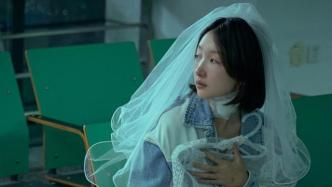
Note: This article contains spoilers
"Morning Clouds and Evening Rain" is adapted from the non-fiction work "The Murderous Girl in a Wedding Dress". Director Zhang Guoli said that he found the person in charge the day after the work was published, and he had the idea of adapting this work into a movie.
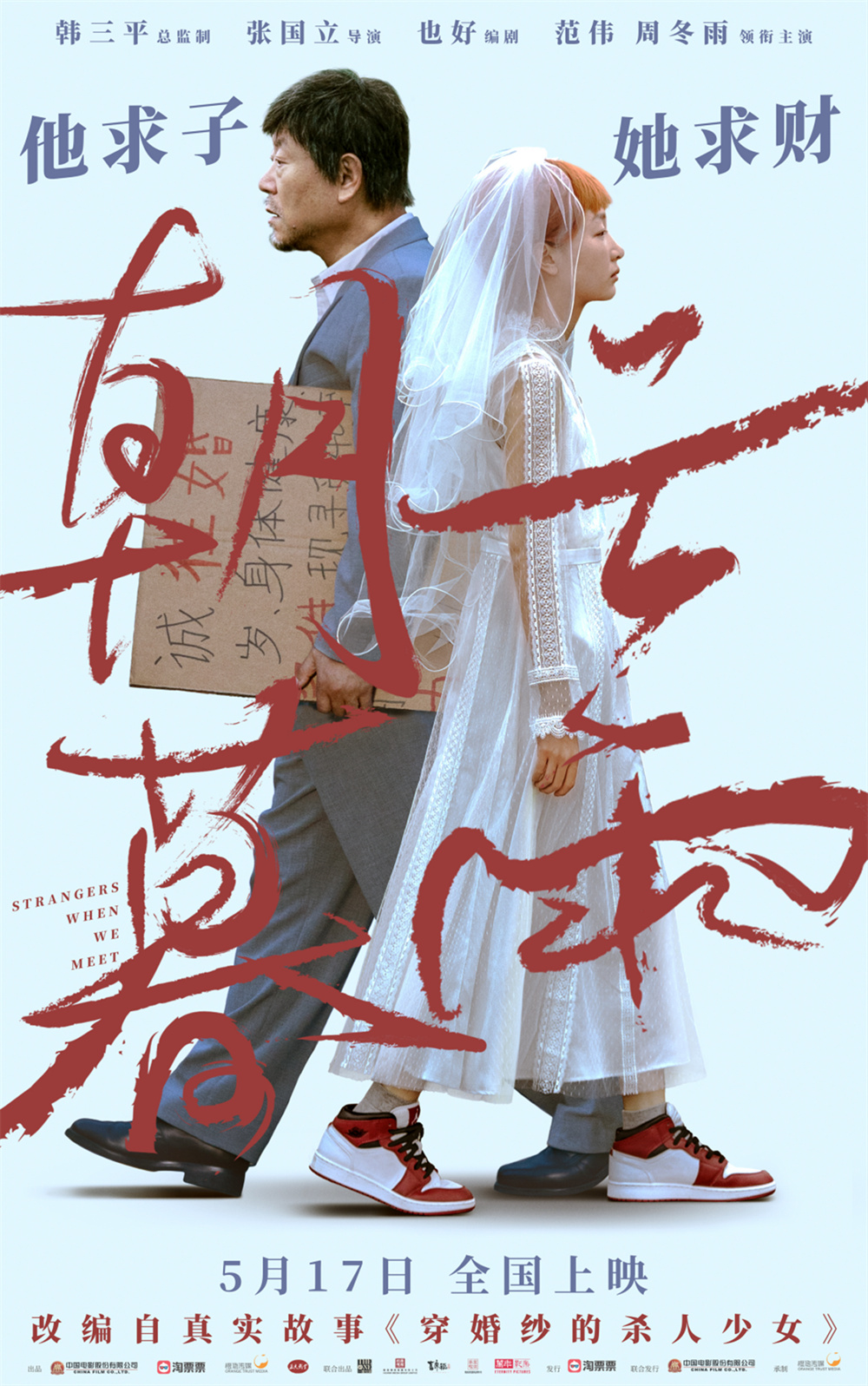
Poster of "Morning Clouds and Evening Rain"
Zhang Guoli said that he wanted to adapt the film for three reasons. First, this story has particularly strong conflicting elements, such as the combination of "wedding dress" and "murderous girl"; second, this story has real and vivid protagonists; third, this story is a controversial true story - after Lao Qin, who had been in prison for 27 years, was released from prison, he longed to make up for his past regrets by getting married and having children. Chang Juan, who was more than 30 years younger than him, had killed someone when she was a minor. After she was released from prison, she decided to marry Lao Qin - one for a child, the other for money.
When "The Killer Girl in Wedding Dress" was adapted into a movie, there were several more highlights, such as the age difference between actors Fan Wei and Zhou Dongyu, and the courage and completion of the two talented actors in playing such controversial roles.
It is completely understandable that the creator had the urge to express such a controversial story, but I wonder if Zhang Guoli has taken into account a very crucial point, that is, the two protagonists of "Morning Clouds and Evening Rain", Lao Qin (played by Fan Wei) and Chang Juan (played by Zhou Dongyu), are released prisoners. They are obviously not perfect characters, and the audience has a natural "sense of distance" from them, which greatly increases the difficulty for the characters to impress the audience.
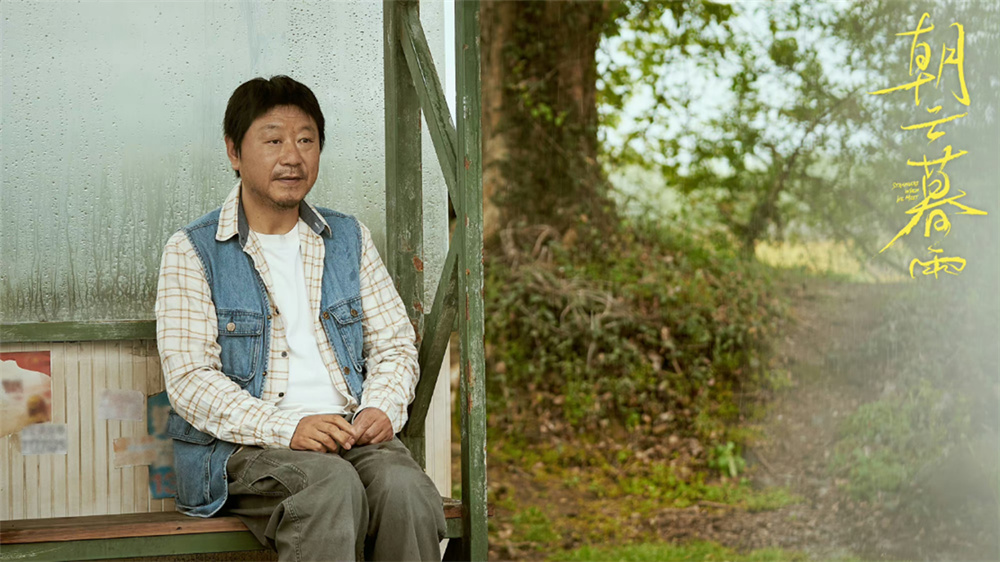
Lao Qin (played by Fan Wei)
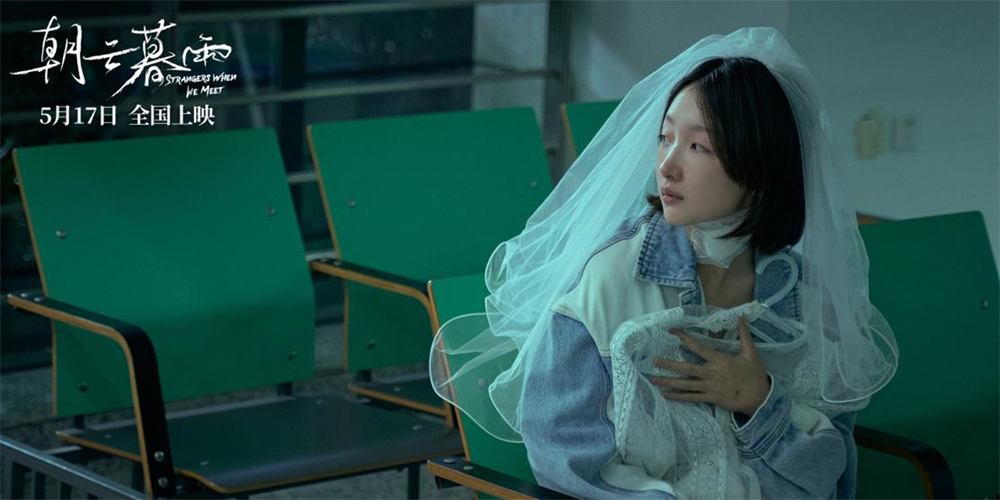
Chang Juan (played by Zhou Dongyu)
Indeed, as the film says, when former prisoners walk out of prison, their identities are no longer "prisoners" but "people". One of the purposes of punishment is to punish criminal behavior, and another important purpose is to promote the transformation and resocialization of criminals. Once prisoners have completed their statutory sentences, they should be given the opportunity to start over, and not be forever discriminated against or deprived of their equal status as members of society because of their past mistakes. Therefore, Lao Qin and Chang Juan have the right to reintegrate into society, and similarly, they have the right to be the subject of expression by filmmakers.
This is the correct reasoning, but we should also admit that from the perspective of some ordinary viewers, individuals who are punished by law for their crimes, and the challenges and rejection they encounter after being released from prison are the natural continuation of the consequences of their actions. They will also question: Why do we film the released prisoners and sympathize with them when there are so many stories about ordinary people?
This view is biased, but it does have a market. To put it another way, if many ordinary people can accept prisoners being released from prison and starting their lives anew, it does not mean that when a movie is directed at them and tells their stories, the audience is willing to understand or empathize.
I have written so much not to say that it is wrong for Zhang Guoli to shoot such a story, but to explain that although this story has natural appeal, shooting it is a great risk. This puts higher demands on the creators: if the director fails to make the characters impress the audience, then the market situation of the film is not optimistic; if the director can make the unlikable protagonist impress the audience who originally have prejudices against them, this is a manifestation of the director's ability.
A comparison can be made with Cao Baoping's "Burning Sun". The three protagonists are criminal suspects, but Cao Baoping does not stop at the superficial narrative of crime and punishment. He touches more deeply on the light and darkness, good and evil of human nature, and the process of seeking spiritual liberation and moral rebirth in pain and mistakes. Therefore, the audience can get rid of their prejudice against the characters and have some sympathy for their atonement.
Can "Morning Clouds and Evening Rain" achieve this level?
A very bold point of "Morning Clouds and Evening Rain" is that the creators continue to expose the unbearable side of the protagonist after he is released from prison. When Lao Qin and Chang Juan live in peace and have a harmonious relationship, they are "gentle and gentle", but in the face of fierce conflicts, they are extremely cruel. To put it bluntly, their cruel side can immediately make the audience understand why they once embarked on the wrong path of murderers.
The movie adds a plot that is not in the non-fiction work. After the two got married and Lao Qin transferred more than 180,000 yuan of betrothal gifts to Chang Juan as Chang Juan said, Lao Qin proposed to Chang Juan that he hoped to have a child with Chang Juan.
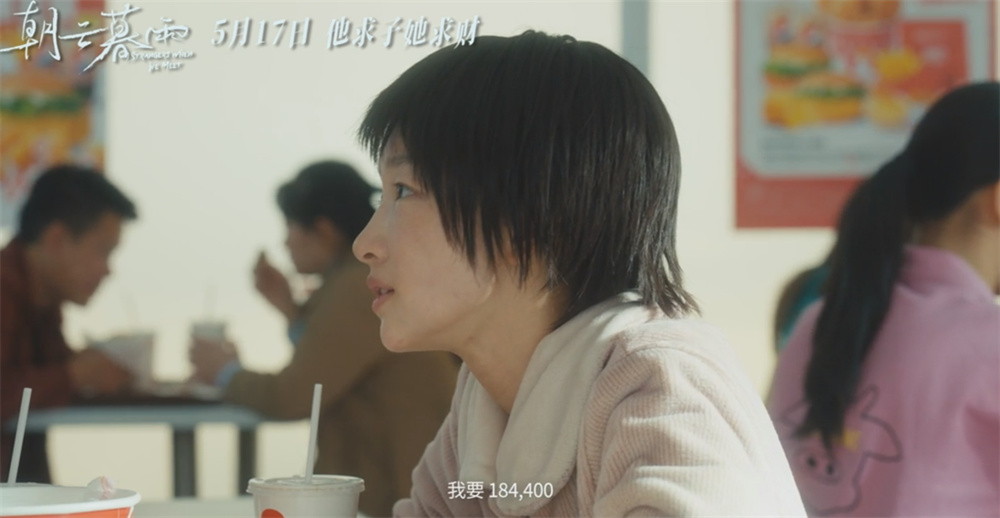
Chang Juan asked for the betrothal money
From Lao Qin's perspective, his request was not excessive. At that time, it was Chang Juan who had been clinging to him and even mutilated herself to cohabit with Lao Qin to try marriage. It was also she who first proposed to have a child for Lao Qin. But after the marriage, Chang Juan suddenly changed her mind, and Lao Qin could not accept it. He expressed his opposition to Chang Juan in a serious manner.
Lao Qin did not expect Chang Juan to change so suddenly and to have such a fierce attitude. Especially after Lao Qin hid her ID card and bank card, Chang Juan almost screamed with a ferocious face (Zhou Dongyu played it so well!), and used words to attack Lao Qin's weaknesses quite viciously - for example, she cursed Lao Qin's parents to become lonely ghosts in hell because Lao Qin had no offspring, etc.

Chang Juan reveals her scary side
Chang Juan was indeed a "marriage fraudster", and Lao Qin had no excuse for attempting to rape her during marriage. Chang Juan successfully resisted Lao Qin, smashed a glass vase on him, kicked him hard several times, and after being tripped by Lao Qin, Chang Juan's subsequent actions were quite horrifying - she inserted the glass shards into her own neck.
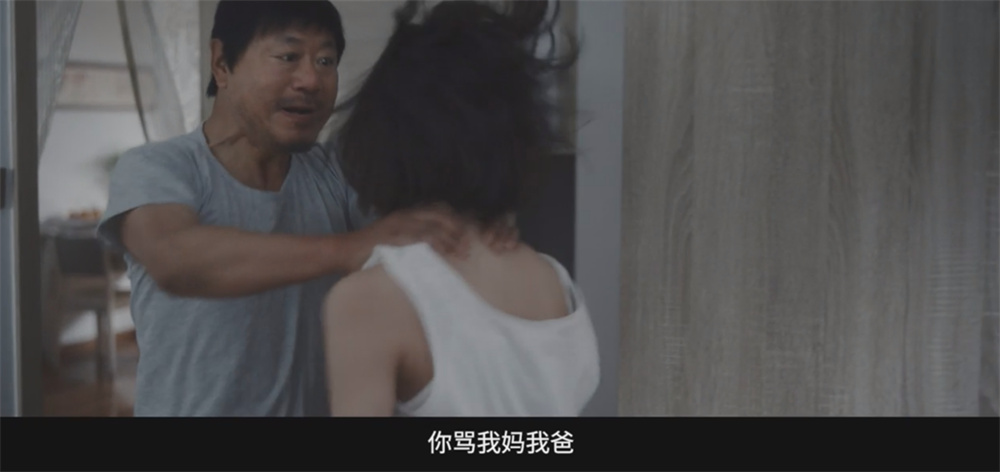
Lao Qin also showed his fierce side
When the plot reaches this point, it is really difficult for the audience to empathize with Lao Qin or Chang Juan - they are both too scary. But from the perspective of artistic creation, not pleasing the audience, not making moral judgments on the characters, and not simply labeling them as "good guys" or "bad guys" can indeed reach the deeper level of human nature and show more of the characters' multi-dimensional personalities and complex inner worlds.
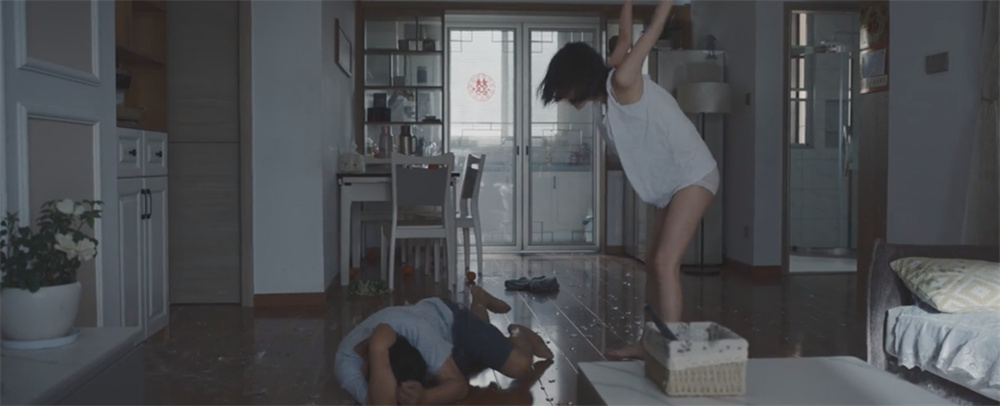
Both of them are particularly "brutal"
After Chang Juan self-harmed, Lao Qin suddenly realized that he was not obsessed with having a child with Chang Juan, as long as Chang Juan was still alive. However, when Chang Juan was leaving the hospital, she disappeared, taking with her the wedding dress Lao Qin had bought for her.
Later, Lao Qin's life took a sharp turn for the worse: after completing her "atonement" for the previous murder case, Chang Juan committed suicide by jumping off a bridge in her wedding dress and became a vegetable. Lao Qin, as a husband, took care of the unconscious Chang Juan.
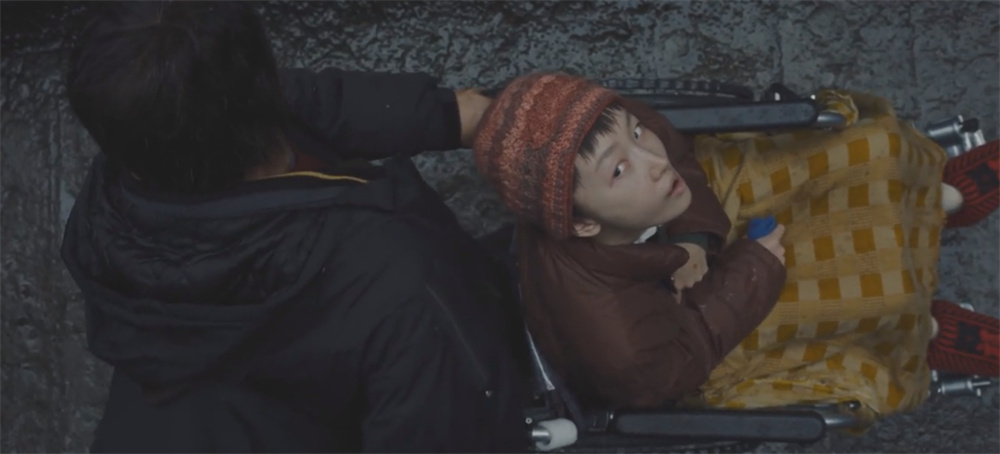
Chang Juan becomes a vegetable
In non-fiction works, the direction of this story is pessimistic. "Lao Qin survived two suspended death sentence lawsuits, but I'm afraid he can't survive this marriage"; the movie gives the story of Lao Qin and Chang Juan a warm ending. Lao Qin takes care of Chang Juan with great pleasure and still lives tenaciously in a difficult life.
After the creators tried so hard to "beautify" Lao Qin, and after the creators gave Chang Juan a tragic yet hopeful ending, could the audience empathize with them?
From my personal perspective, it is still too difficult. Chang Juan's strong sense of repentance and atonement can reflect the good side of her human nature, but her "marriage fraud" to Lao Qin, although not against the law, leaves a moral flaw. Becoming a vegetable was not her wish, and becoming Lao Qin's "burden" is also a "sin" invisibly. This makes her atonement and repentance seem contradictory.
Trying to let Lao Qin perform a story similar to "living", Lao Qin has the right to be a new person, the director has the right to tell the story, and the audience has no right not to be moved. The male director's "preference" for Lao Qin really loses some artistic objectivity - the ending of a non-fiction work may be closer to the reality of human nature.
The characters retreat, and fate emerges. The real protagonist of "Morning Clouds and Evening Rain" is fate and the tricks of fate.
Fate first inadvertently pushed Lao Qin and Chang Juan into a desperate situation. They had both killed people - accidentally killed people and killed the wrong people. After they were released from prison, they tried to start their lives again, but were once again teased by a series of coincidences and wrong choices.
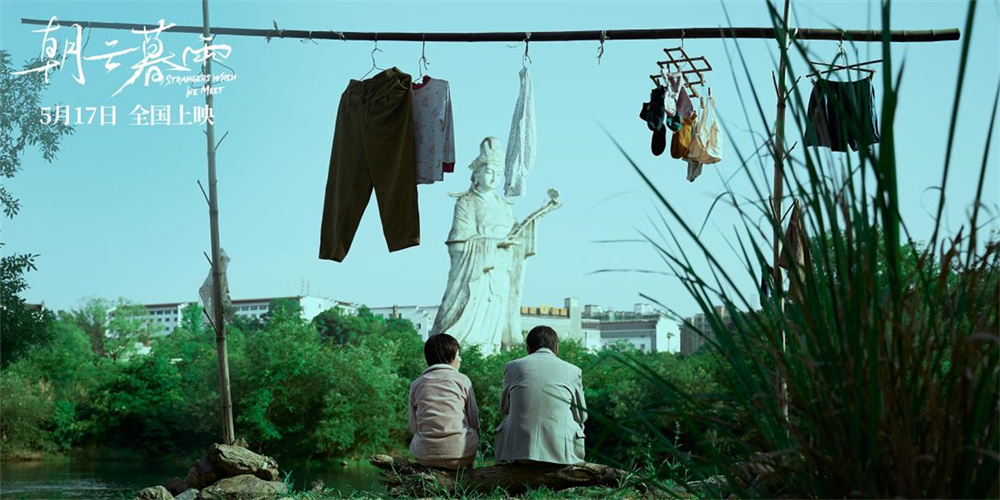
The first encounter is a rare moment of warmth
Although Chang Juan repaid her material debt, she could not escape the condemnation of her conscience and despair about the future. Even though she was free in the legal sense, the shackles of her heart were still heavy. She eventually became a vegetable, which was obviously not what she had originally envisioned - she wanted to die, but she lived in a vegetative state.
Lao Qin was defrauded of his money, and although he found someone to spend the rest of his life with, she is a vegetative person who may need to rely on Lao Qin's meticulous care for the rest of her life.
Fate influenced and rewrote their lives in such unexpected ways.
How should we understand the reference of the title "Morning Clouds and Evening Rain"? Is it its original meaning, used to describe the beautiful but short-lived relationship between Lao Qin and Chang Juan, or is it referring to the status of the characters, "Lao Qin is 56 years old, but he is as surging as morning clouds; Chang Juan is 24 years old and her life has just blossomed, but she is falling like evening rain"?
But perhaps, morning clouds and evening rain refer to the unpredictable hand of fate. Fate is like turning the hand to make clouds and rain, with great control and manipulation power, sometimes bringing good luck and sometimes throwing away bad luck, changing a person's life trajectory in an instant.
The film emphasizes the impermanence and uncertainty of life, as well as the insignificance and powerlessness of individuals in the face of fate, but it also attempts to use Lao Qin's "being alive" to highlight the individual's responsibility and struggle against fate, trying to illustrate that: one does not have to accept the tricks of fate helplessly, "being alive" itself is a victory.
"Morning Clouds and Evening Rain" has its artistic integrity and completes its expression in a self-consistent way. But I still want to express a pity: this is not necessarily a story that will move the audience. I have emphasized many times in the previous article that it is difficult for the audience to empathize with the characters themselves; and it is also difficult to express the theme of the tricks of fate and the responsibility for fate.
"Fate" is an eternal theme from ancient Greek tragedies to the present day. "Morning Clouds and Evening Rain" has no heroes, no historical weight like "To Live", and no more in-depth narration of fate. It only selects marginal characters as protagonists and uses a rather bizarre story as the framework.
Perhaps the movie is more worth watching because of Zhou Dongyu, who "would rather make mistakes than be boring." Compared to the "safe card", Zhou Dongyu chooses a different path. She is willing to take risks and choose challenging female roles that are not common in domestic films. They are complex and diverse, touching on sensitive or underexplored topics, even if it means encountering criticism, box office failure, or public misunderstanding.


